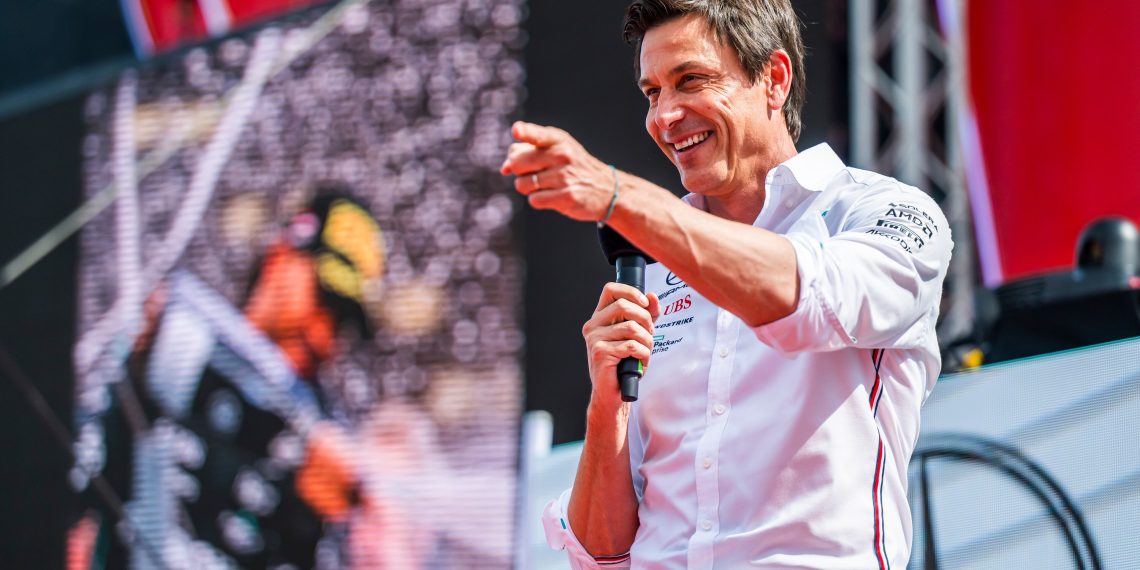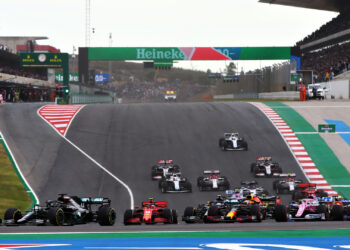The Formula 1 grid is set to expand in 2026, with General Motors (GM) officially entering the sport under the Cadillac banner. While the announcement marks a significant milestone, it also signifies a dramatic shift in tone from one of F1’s most influential figures—Mercedes team boss Toto Wolff. Once a vocal opponent of Michael Andretti’s push to join the grid, Wolff now fully supports GM’s takeover of the bid.
Why Toto Wolff Supports GM’s Entry
Wolff, who had previously criticized Andretti’s efforts, claims his opposition was never about keeping new teams out but ensuring their inclusion brought measurable value to the sport. GM’s entry, he argues, clears this bar.
“I’ve always said, if a team is accretive – as in value-adding – absolutely, because it’s a no-brainer,” Wolff remarked.
With General Motors bringing its global brand power, commercial clout, and long-term plans to develop its own power units, Wolff believes the American car giant’s presence will elevate F1’s appeal and bolster its competitive structure.
A Stinging Critique of Andretti’s Approach
Despite endorsing GM, Wolff did not shy away from criticizing Michael Andretti, who had spearheaded the initial bid.
“If you want to go to a party and you’re not invited, at least make the case why you should be sitting at the table. None of that happened,” Wolff said, suggesting Andretti failed to present a compelling case to F1 stakeholders.
This comment underscores the skepticism Andretti faced from existing teams, many of whom questioned the added value his team would bring. GM’s involvement, however, has flipped the narrative, transforming a struggling bid into an undeniable opportunity.
Lingering Questions About the Deal
While Wolff supports GM’s entry, he highlighted several unresolved issues. Chief among them are the anti-dilution fee—a $200 million payment to compensate existing teams for potential prize fund reductions—and how GM will structure its commercial and technical involvement with F1.
“Now, GM coming in as a shareholder, with its own engine, is accretive. Definitely. But we still don’t know enough about the structure of the deal, the anti-dilution payment, or the eligibility to participate in the prize fund,” Wolff explained.
These elements will play a pivotal role in determining how smoothly GM’s transition into F1 proceeds, especially as existing teams remain protective of their financial interests.
Why GM Succeeded Where Andretti Failed
Michael Andretti’s initial bid to join F1 was met with widespread resistance, with critics arguing it lacked sufficient financial backing, global appeal, and technical depth. GM’s takeover, however, has changed the equation entirely.
- Global Brand Power: As one of the world’s largest automakers, GM’s presence boosts F1’s profile, especially in the lucrative North American market.
- Technical Investment: GM’s commitment to developing its own power units for future seasons has won over skeptics concerned about long-term competitiveness.
- Commercial Credibility: With GM’s resources, the new team can secure sponsorships and partnerships that were beyond Andretti’s reach.
Challenges Ahead
While GM’s entry into F1 appears promising, the road ahead is far from straightforward. Key challenges include:
- Finalizing the Anti-Dilution Fee: Negotiations will need to satisfy existing teams while ensuring GM’s entry is financially viable.
- Building a Competitive Team: Developing a power unit and a strong driver lineup will be crucial to competing with established teams.
- Navigating Political Hurdles: F1’s intricate ecosystem of stakeholders will require careful negotiation to ensure GM’s long-term success.
A New Chapter for F1
General Motors’ arrival marks a transformative moment for Formula 1, bringing fresh energy and resources to the grid. Toto Wolff’s endorsement signals a significant shift in the paddock’s attitude toward new entrants—provided they meet the high bar set by the sport’s elite.
As the countdown to 2026 begins, all eyes will be on GM and Cadillac as they prepare to make their mark on motorsport’s grandest stage.










